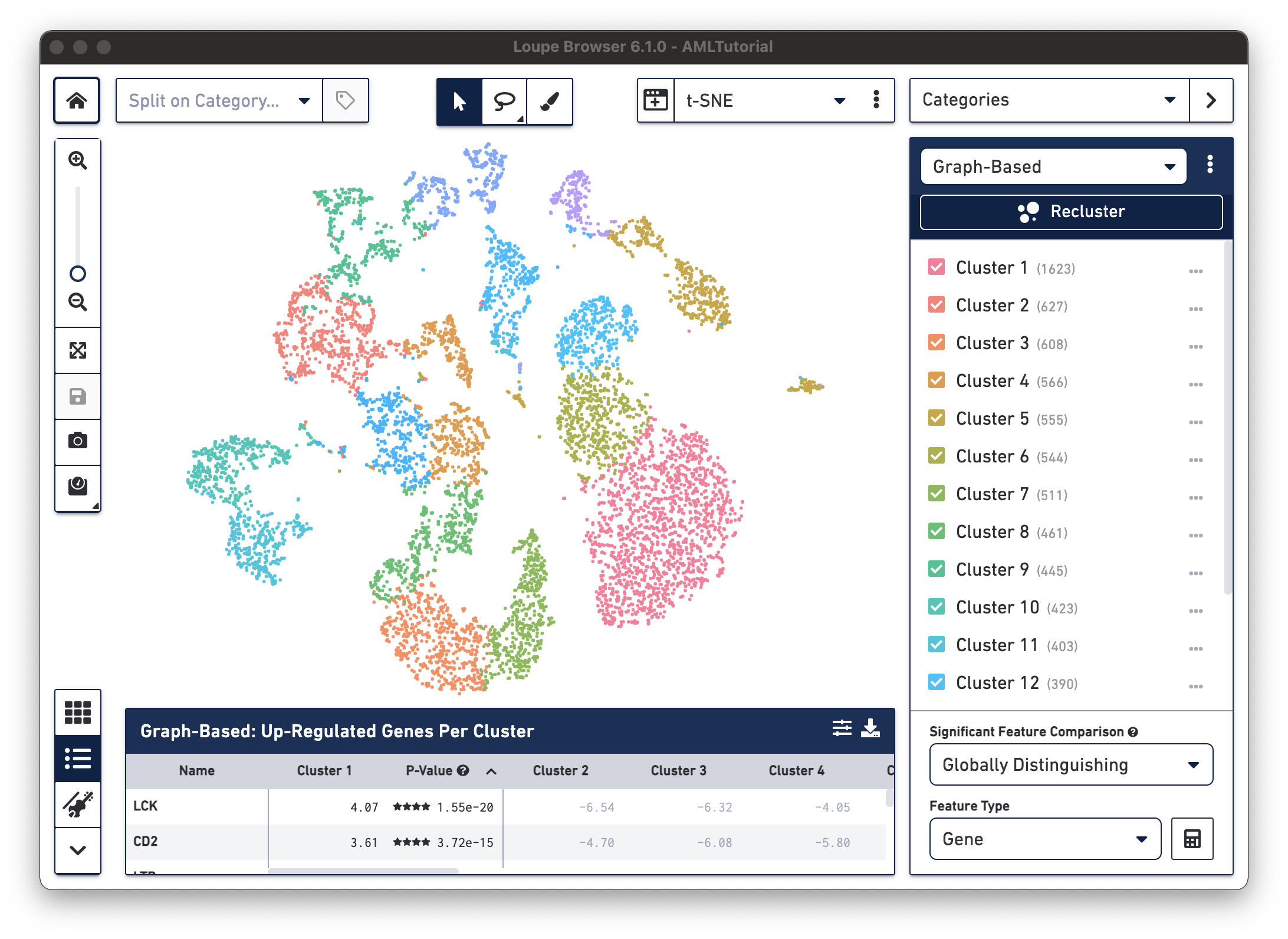Cell Ranger6.4, printed on 04/09/2025
|
Documentation and downloads for Loupe Browser 7.0 are now available on our redesigned software support site. This site is being maintained temporarily to support older versions of Cell Ranger and Loupe Browser, and all versions of Loupe V(D)J Browser. |
Loupe Browser is a desktop application that provides interactive visualization functionality to analyze data from different 10x Genomics solutions. Loupe Browser allows you to easily interrogate different views of your 10x Genomics data to quickly gain insights into the underlying biology. Loupe is named for a jeweler's loupe, which is used to magnify and inspect the details of precious gemstones.

Loupe Browser supports the analysis of the following types of data:
Chromium Platform
Visium Platform
To use Loupe Browser, open any .cloupe file generated by the Cell Ranger
analysis software. The Cell Ranger .cloupe file is embedded with the following
information:
Once your data is in Loupe Browser, you can rapidly explore and gain insights from the data without the need to do any programming.
Loupe Browser provides many powerful analysis capabilities. To walk through its features and uses for analyzing your gene expression data, start with the tutorial introduction page.
Loupe Browser is built to accelerate the following applications:
Finding Cells of Interest
Use Loupe Browser guided filtering and reclustering tools (versions 5.0 and later) to narrow your focus to the cells that matter.
Finding Significant Genes
Determine genes that uniquely characterize clusters at the press of a
button.
Identifying Cell Types
Use gene lists and the gene expression view to locate different cell types and
functional groups.
Exploring Substructure
Create custom clusters and use differential expression tools to identify even
smaller subgroups in your data.
Exploring Cell Subtypes
Use the filter panel to create complex boolean filters to find cell subtypes
in your dataset.
Integrated Gene Expression and V(D)J Analysis
Combine gene expression and immune repertoire data from the same sample to
gain new insights about complex disease.
Sharing Results
Save genes of interest, export data tables, and capture screenshots of your
single-cell data.